How Does Caffeine Affect Weight Loss?
WhatToGetMy Instructional Article
How does caffeine affect weight loss? Is drinking coffee preventing you from losing weight or does caffeine cause weight loss? We’ll try to tackle these questions in this article. Naturally, we’ll start by talking about caffeine in general and then we’ll discuss its relation to weight loss/gain.
This topic is still very debated and it’s one of the most popular controversies about weight loss. A lot of people argue that caffeine can help you stay alert, improve concentration, and lose weight. However, the opposite side claims that caffeine intake can’t make you skinnier and that its effect on your metabolism isn’t healthy. We’ll give you information that includes both points of view.
Before you get further down the article, we’d just like to mention this:
- Be careful when using caffeine products. If you use it in moderation, caffeine is pretty much safe. However, too much caffeine leads to overdose with symptoms such as nervousness, insomnia, nausea, increased blood pressure, etc.
- Due to its addictive nature, consuming caffeine becomes a habit. If you want to stop consuming caffeine, it’s best if you take it slow and find some alternatives to caffeine, so you can lessen the withdrawal symptoms such as headache, grogginess, and irritability.
What is caffeine?
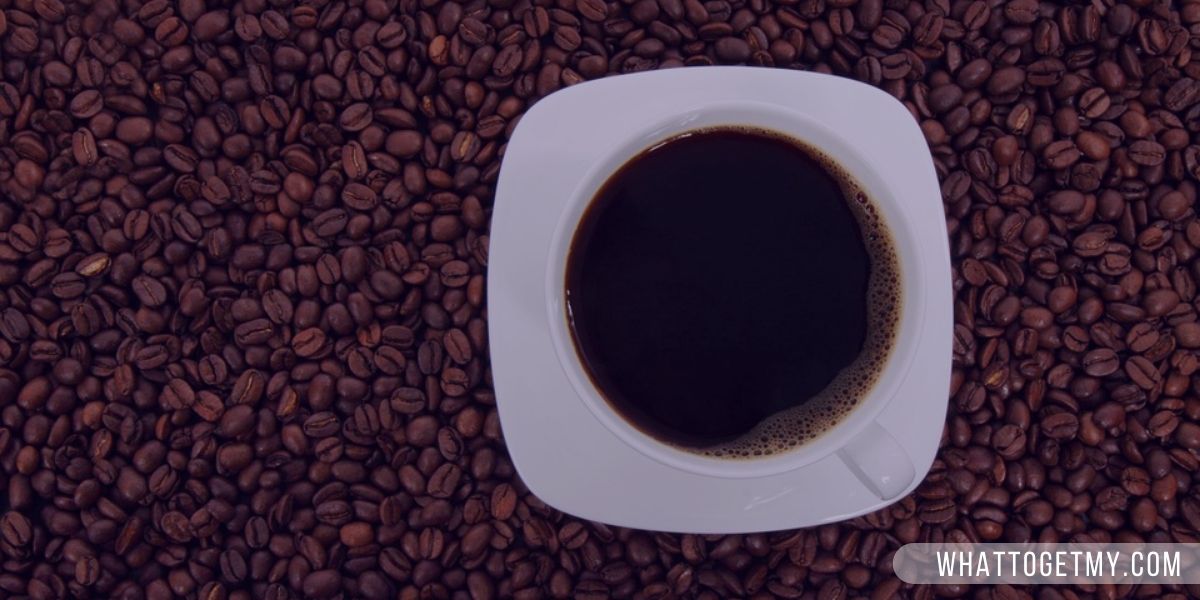 Caffeine is a stimulant substance used by many on a daily basis. People usually consume it through coffee and tea to stay awake, reduce fatigue, and improve focus. It can improve the mood and it also functions as a mild diuretic.
Caffeine is a stimulant substance used by many on a daily basis. People usually consume it through coffee and tea to stay awake, reduce fatigue, and improve focus. It can improve the mood and it also functions as a mild diuretic.
Caffeine blocks adenosine, a chemical that promotes sleepiness and fatigue. It also encourages the release of adrenaline and cortisol, hormones that give you energy and metabolism boost, and put your body in “fight mode”. When hormone levels drop, you’ll feel the need for more caffeine. This means that caffeine doesn’t provide your body with true energy, just a small energy rush.
Low and moderate doses of caffeine are considered safe for one’s health but consuming too much can be harmful. For an adult, that means no more than 300 mg of caffeine daily (3-4 cups of coffee).
Naturally, this depends on your body and health conditions, so some people can have more caffeine without side effects. However, if you’re having cardiovascular problems or trouble with anxiety, you should limit the caffeine consumption to one cup of coffee/tea a day, or cut caffeinated drinks altogether.
Did you know?
In the US, around 90% of adults drink caffeine every single day! But how many cups of coffee do Americans drink daily?
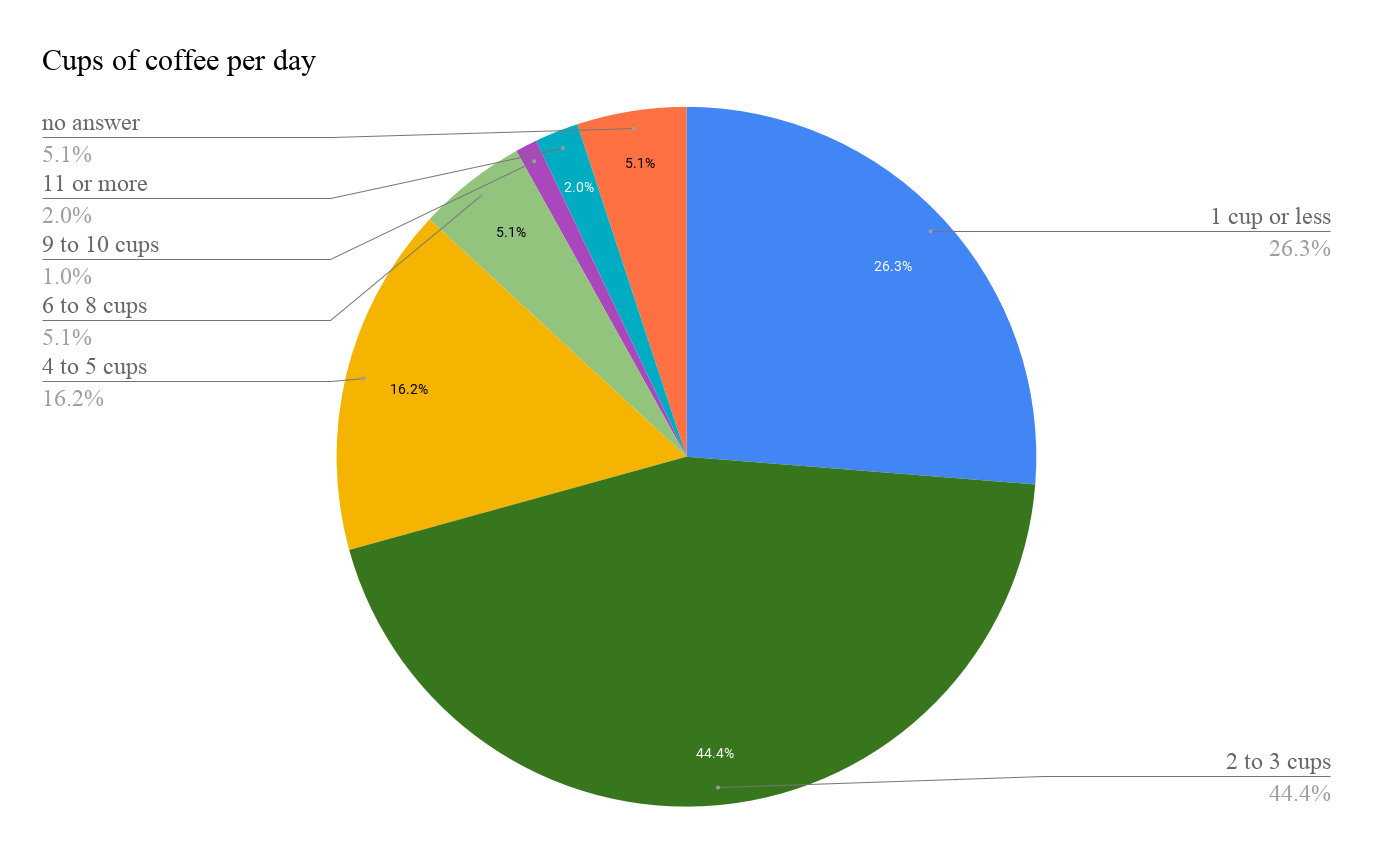
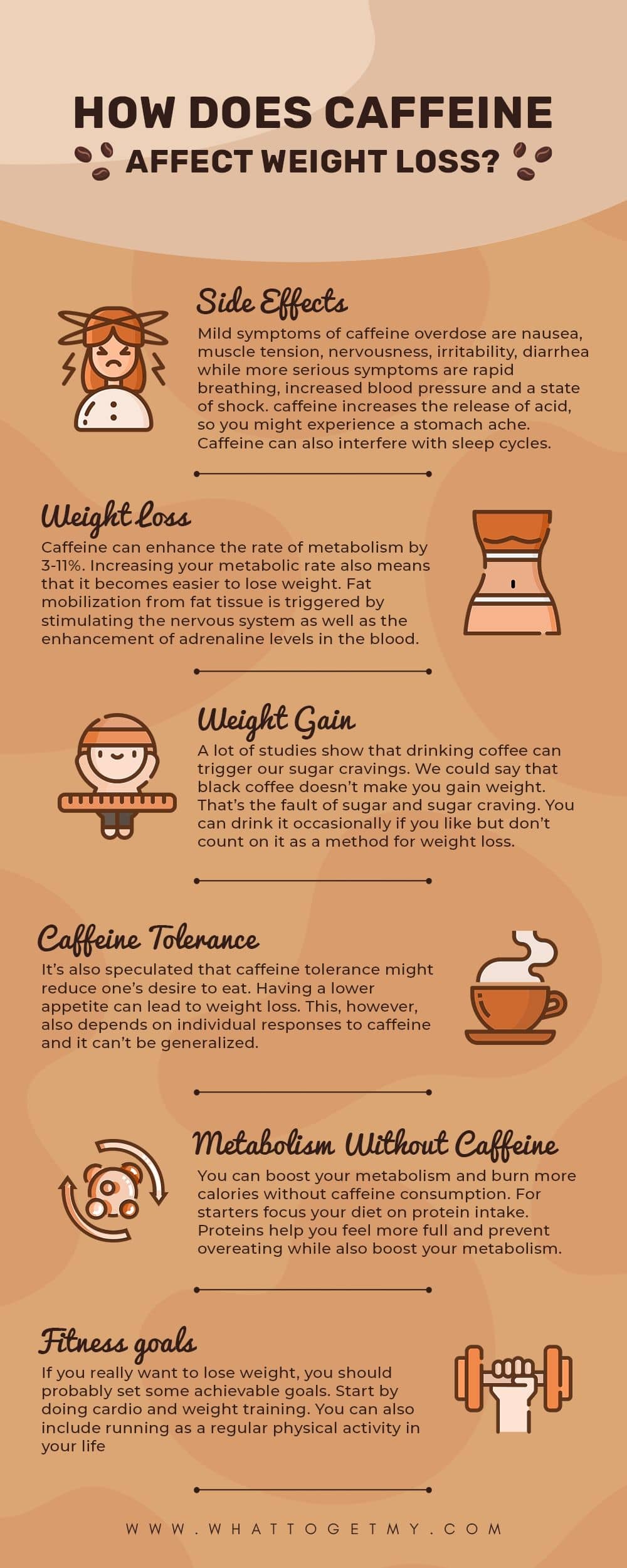
Use this graphic for free, just source us with this link:
Source Link: https://whattogetmy.com/how-does-caffeine-affect-weight-loss/
Side effects of caffeine intake
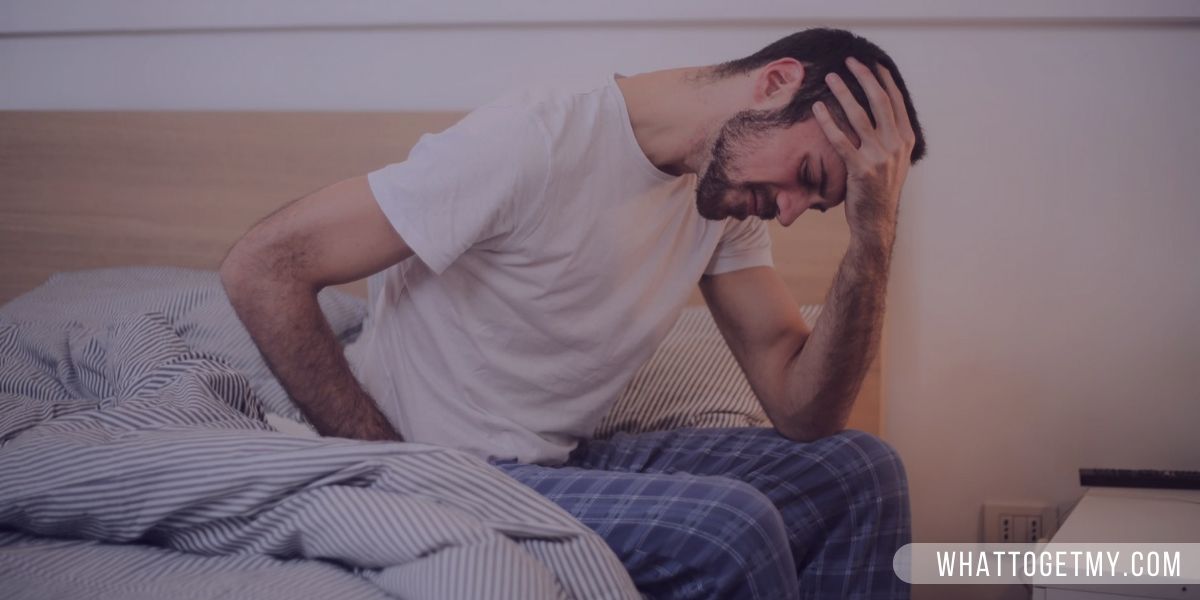 As we said, an occasional cup of coffee isn’t a problem. Drinking moderate amounts of coffee even has benefits such as reduced risk of dementia, Parkinson’s disease, etc. However drinking too much coffee, tea, or energy drinks leads to a caffeine overdose.
As we said, an occasional cup of coffee isn’t a problem. Drinking moderate amounts of coffee even has benefits such as reduced risk of dementia, Parkinson’s disease, etc. However drinking too much coffee, tea, or energy drinks leads to a caffeine overdose.
Mild symptoms of caffeine overdose are nausea, muscle tension, nervousness, irritability, diarrhea while more serious symptoms are rapid breathing, increased blood pressure, and a state of shock.
Sometimes even occasional consumption of caffeine can have negative side effects. For example, caffeine increases the release of acid, so you might experience a stomach ache. Caffeine can also interfere with sleep cycles.
Weight loss
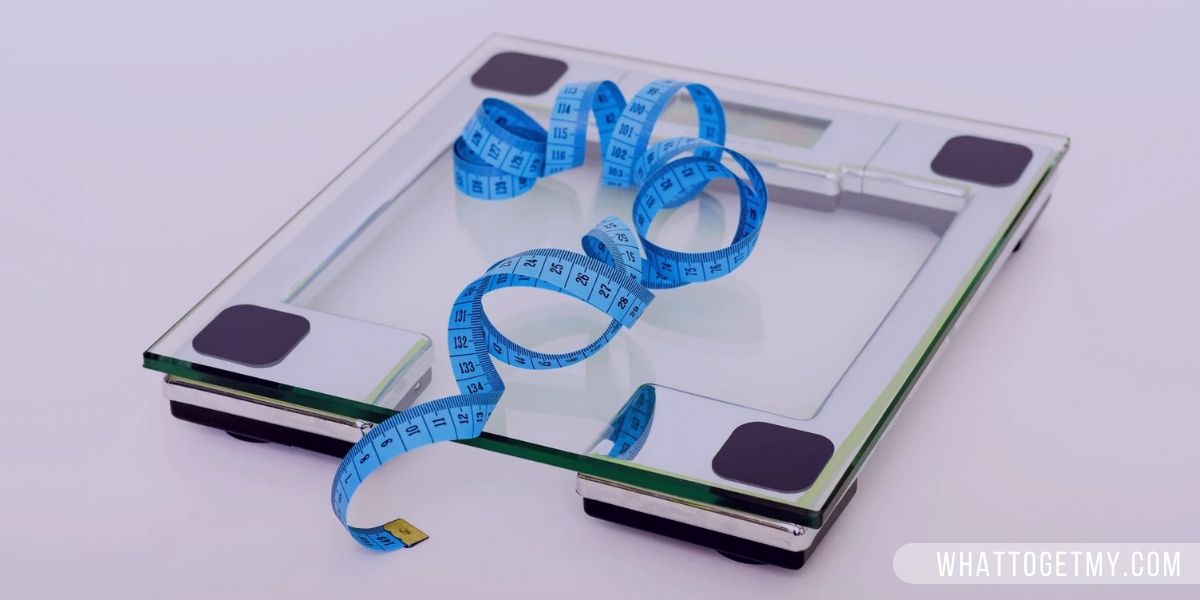 Due to the effects of caffeine on metabolism people argue that drinking green tea or black coffee can burn belly fat. Stimulating the nervous system and releasing hormones that put your body in “fight mode” can increase the demand for energy (from fats cells for example). Fat mobilization from fat tissue is triggered by stimulating the nervous system as well as the enhancement of adrenaline levels in the blood.
Due to the effects of caffeine on metabolism people argue that drinking green tea or black coffee can burn belly fat. Stimulating the nervous system and releasing hormones that put your body in “fight mode” can increase the demand for energy (from fats cells for example). Fat mobilization from fat tissue is triggered by stimulating the nervous system as well as the enhancement of adrenaline levels in the blood.
Caffeine can enhance the rate of metabolism by 3-11%. Increasing your metabolic rate also means that it becomes easier to lose weight. A lot of people argue that caffeine boosts athletic performance and increases the effectiveness of exercise, so they suggest drinking a cup of coffee or green tea before workouts to engage those fat deposits.
This is, however, still debated because caffeine won’t affect everyone’s metabolism the same. There isn’t a consensus that caffeine can help you lose weight. Some people find it helpful while others don’t. Scientific studies and research about this topic gave us conflicting results, so we should take every new data about this with a grain of salt.
Weight gain
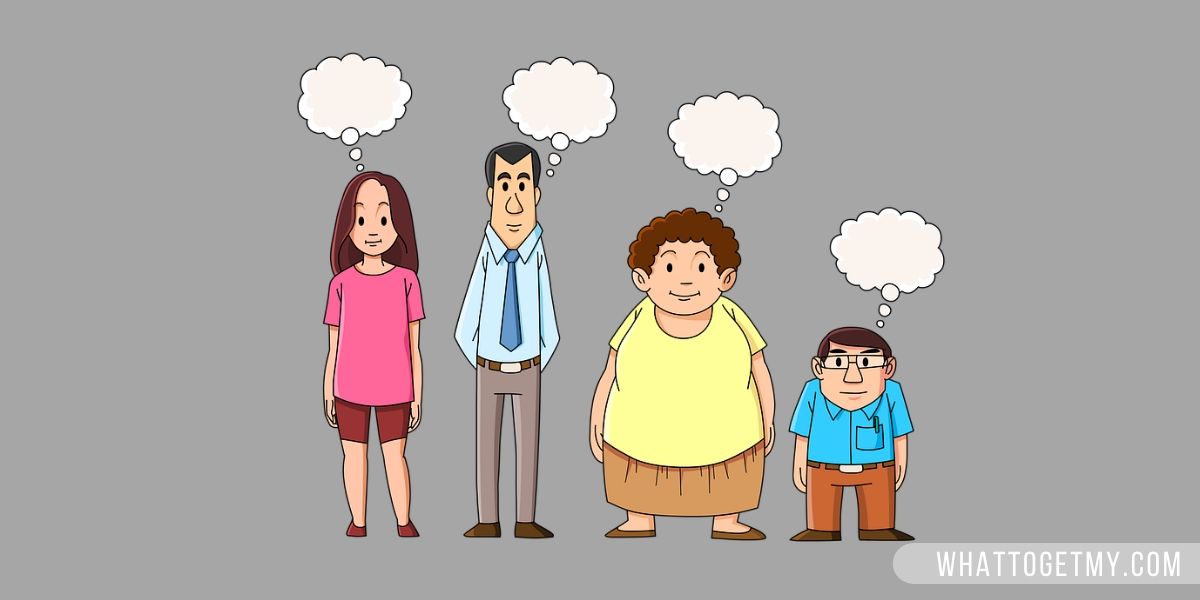 People have also discussed the question: does caffeine make you gain weight. How can that happen? A lot of studies show that drinking coffee can trigger our sugar cravings. Putting our body in “fight mode” can lead to stress eating and an increased desire for comfort food. Instead of cutting down on calories, we consume more sweets and snacks, which leads to weight gain.
People have also discussed the question: does caffeine make you gain weight. How can that happen? A lot of studies show that drinking coffee can trigger our sugar cravings. Putting our body in “fight mode” can lead to stress eating and an increased desire for comfort food. Instead of cutting down on calories, we consume more sweets and snacks, which leads to weight gain.
On top of this, a lot of people consume caffeine through energy drinks that are loaded with sugar. People also tend to put sugar and milk in coffee/tea, so you consume additional calories that lead to weight gain.
We could say that black coffee doesn’t make you gain weight. That’s the fault of sugar and sugar craving. However, we don’t know for sure how coffee affects your diet. You can drink it occasionally if you like but don’t count on it as a method for weight loss.
The only sure method for weight loss is by creating a calorie deficit (burning more calories than you consume). You can do this by either exercising more or eating less. The combination of a healthy diet and regular exercise is usually the most effective.
Caffeine Tolerance
Caffeine does boost your metabolism in the short term but this depends on how long you have been consuming it. For people who developed tolerance, caffeine doesn’t have the same effects on metabolism. This means that some people might experience an increase in fat burning but after some time they can become tolerant to the effects.
It’s also speculated that caffeine tolerance might reduce one’s desire to eat. Having a lower appetite can lead to weight loss. This, however, also depends on individual responses to caffeine and it can’t be generalized.
Coffee vs Green tea
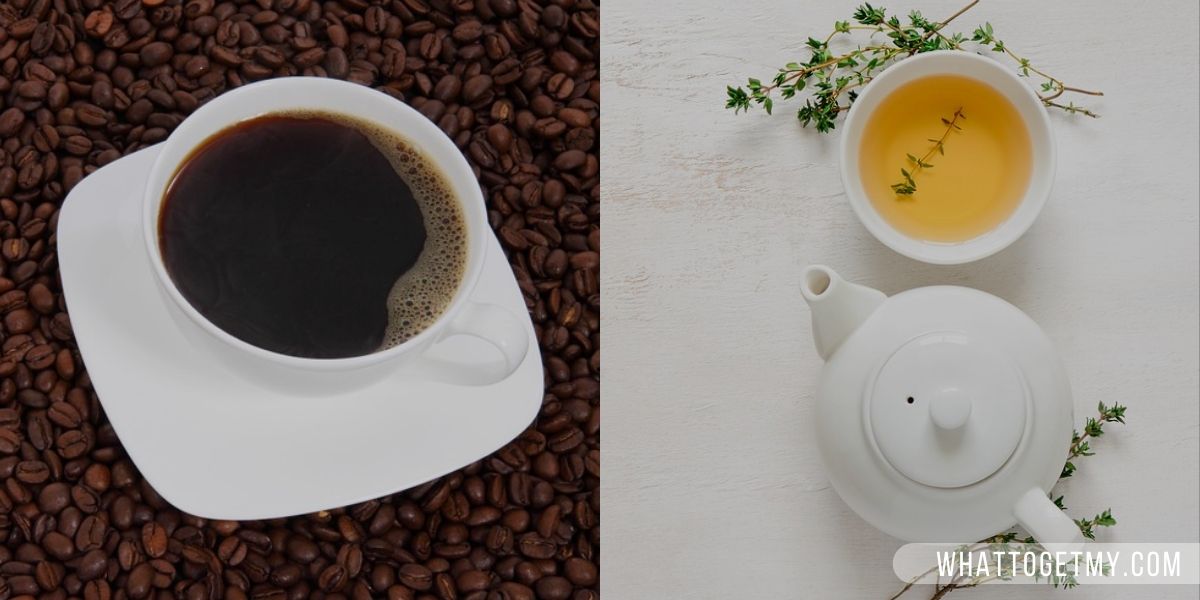 It’s not the same whether you’re getting your caffeine through coffee or green tea. The drinks have different ingredients and structure. They also have different doses of caffeine. For example, one cup of green tea can contain between 30 and 50 mg of caffeine while one cup of coffee can have 70–140 mg of caffeine.
It’s not the same whether you’re getting your caffeine through coffee or green tea. The drinks have different ingredients and structure. They also have different doses of caffeine. For example, one cup of green tea can contain between 30 and 50 mg of caffeine while one cup of coffee can have 70–140 mg of caffeine.
Green tea carries a lot of health benefits because it contains antioxidants that can prevent or delay cell damage. Green tea also has amino acid L-theanine that helps you relax.
On the other hand, coffee also has some benefits such as preventing diseases such as Alzheimer’s, Parkinson’s, depression, etc. These benefits, we should repeat, come with occasional consumption. If you consume too much you’ll experience caffeine overdose and damage your health.
Other forms of caffeine
There are healthier forms of caffeine like matcha and yerba mate that can be beneficial for weight loss. However, popular caffeine sources are loaded with sugar and can prevent you from losing weight.
Stay away from energy drinks, sodas, caffeine pills, chocolate, and similar caffeinated products if you don’t want to gain weight. You can keep chocolate though in moderation because it has a lot more positive effects than energy drinks and sodas carry.
Boosting your metabolism without caffeine
You can boost your metabolism and burn more calories without caffeine consumption. For starters focus your diet on protein intake. Proteins help you feel more full and prevent overeating while also boost your metabolism.
Drinking lots of water also helps. People who drink water instead of sugary drinks are more successful at losing weight. Sugary drinks are full of empty calories and they don’t satisfy your thirst.
Cut them off completely and crab a glass of water when you’re thirsty. Water doesn’t only satisfy your thirst but it speeds up your metabolism. Also, some studies show that drinking water half an hour before lunch/dinner can help you eat less.
Working out (whether it’s cardio or lifting) is also affecting your metabolism. You’ll burn more calories even when you’re resting and recovering, so exercise is always recommended for weight loss. Sure you can lose weight with diet changes only, but if you work out, you won’t lose muscles but only strengthen them.
If you’re not prone to intense workouts, just make sure you stand up more and walk a lot. Sedentary lifestyle slows your metabolism and you’ll end up burning much fewer calories than you consume, so you gain weight. If you have a desk job, make lots of standing breaks, and use your free time for walking. You can even invest in a standing desk.
In the end, get enough sleep (an average of 8 hours). Sleep deprivation has negative effects on metabolism. It increases your blood sugar levels and boosts the hormone ghrelin that encourages hunger. Many sleep-deprived people feel hungry and have trouble with weight loss.
Fitness goals
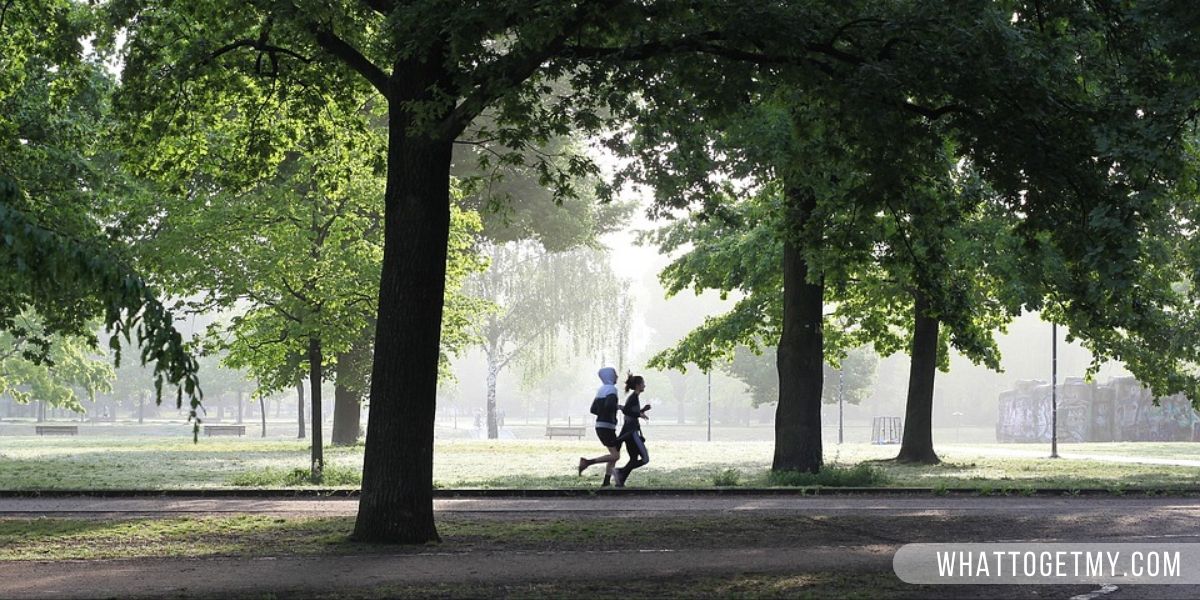 If you really want to lose weight, you should probably set some achievable goals. Start by doing cardio and weight training. You can also include running as a regular physical activity in your life. Incorporating fitness activities into your lifestyle will be more beneficial in the long run than caffeinated drinks and supplements ever can.
If you really want to lose weight, you should probably set some achievable goals. Start by doing cardio and weight training. You can also include running as a regular physical activity in your life. Incorporating fitness activities into your lifestyle will be more beneficial in the long run than caffeinated drinks and supplements ever can.
Caffeine does offer short term boosts to some people, but due to caffeine tolerance and dangers of caffeine overdose, it’s simply not worth it. Put your health as a priority and make dietary changes that can only improve it. Don’t force usage of caffeine or any other stimulant and try to lose weight naturally – with exercise and a healthy diet.
Frequently asked questions
Does caffeine help or hinder weight loss?
Caffeine alone won’t help you lose weight. It might boost your weight-loss efforts a little, but there’s no solid evidence that caffeine consumption leads to noticeable weight loss.
Is it bad to drink coffee when trying to lose weight?
An occasional cup of coffee probably won’t affect your weight loss progress. It might even have a short term effect on metabolism that can help you with weight loss. However, coffee encourages more sugar cravings that ultimately lead to weight gain.
Does the coffee diet work?
The coffee diet is based on drinking at least 3 cups of coffee per day and restricting calorie intake. The only part of the diet that “works” is measuring calories. Coffee alone won’t help you and if you drink more than 3 cups you can experience negative side effects of excessive caffeine intake.
How many coffees a day is healthy?
Daily coffee intake of 3-4 cups is a safe amount (up to 300-400 milligrams of caffeine). You can drink both coffee and tea and maintain a healthy diet if you limit the amount consumed per day.
Does lack of sleep cause weight gain?
Sleep deprivation can cause changes in hormones that regulate appetite which means you’re more likely to eat more. You’re more likely to lose weight if you maintain a healthy sleep cycle.
Conclusion
In the end, it doesn’t matter how does caffeine affect weight loss because you can’t rely on caffeine as your dietary solution. Maintaining a healthy diet and exercising regularly is the only proven way to lose weight.
You can use stimulation qualities of caffeine to boost your exercise routine for a while but be sure to keep total caffeine consumption under 300 mg per day. Also choosing natural sources of caffeine is always better, so feel free to explore various types of tea. Just make sure you have enough motivation to exercise and we’re sure you’ll reach your goal.
01 HOUR 29 MINUTES
ESTIMATED TIME DESIGNING AND UPLOADING THIS ARTICLE
07 HOURS 13 MINUTES
ESTIMATED TIME RESEARCHING AND WRITING THIS ARTICLE
You Might Also Like


